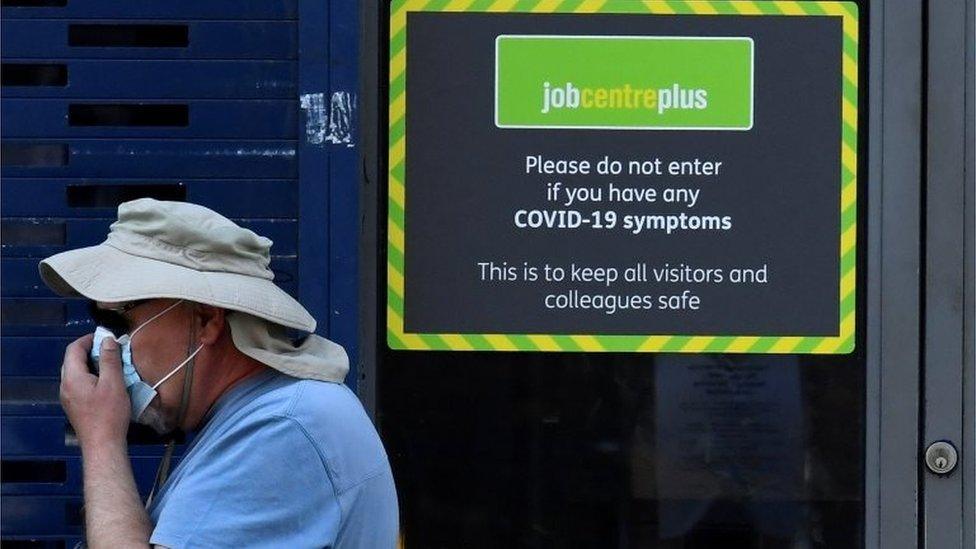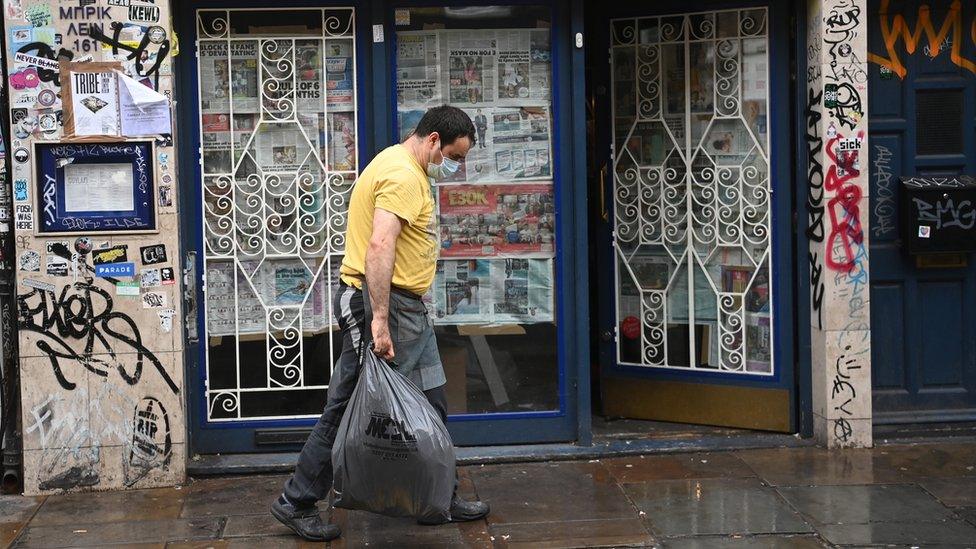Low-paid workers face pandemic 'double whammy'
- Published
- comments

A fifth of UK hospitality jobs - 660,000 - have been lost this year
Britain's low-paid workers face a "double whammy" as Covid-19 accelerates the pace at which technology replaces human jobs, according to a report.
The Commission on Workers and Technology said sectors such as retail and hospitality are being hit twice - first by furlough, then automation.
It said pay gaps will widen, with the young, women, and minorities hit hard.
Commission chairwoman, Labour MP Yvette Cooper, said the rewards of new technologies "won't be evenly shared".
The commission, which began investigating two years ago, found that 61% of jobs furloughed in the first half of 2020 were in sectors at high risk of automation.
Many of the jobs put on hold by public health measures are unlikely to come back, and job opportunities for many low paid people already made redundant are in decline.
The report said that 5.6 million of the 9.6 million furloughed workers were in sectors at the highest risk of automation, Some 3.1 million workers were in the most vulnerable fields of hospitality, retail and the motor trade.
During spring lockdown, 42% of those in the lowest pay grades were furloughed, lost their job or had hours cut, compared to 15% on highest pay.
Inequality
The report also says Job Centres are "not equipped" to deal with re-training millions of unemployed for the new world of work.
From retail to hospitality to manufacturing, businesses have innovated and adopted new technologies in order to survive during the pandemic, but many furloughed jobs will not return as a result, Ms Cooper said.
"The Covid crisis is causing a double whammy for low-paid workers. This year they are more likely to have been furloughed or made redundant.
"Next year they are more likely to find their jobs have been replaced by technology as Covid accelerates automation.
"The government isn't focusing on the double impact and that means inequality is likely to grow and there's a serious risk of long-term unemployment," she said.

The commission says agencies to help people into jobs or re-train need a radical overhaul
The Office for National Statistics (ONS) has estimated that more than 1.5 million low-skilled jobs are at high risk of automation.
Of those, 70% are women and 99% do not have degrees. The 16-24 age group are more than eight times as likely to be in these high-risk jobs, the ONS said.
The commission called for urgent action, including:
An immediate plan for free training for all furloughed workers, and more support for freelancers and the excluded self- employed
A focus on retraining and job support for the retail and hospitality sectors
An overhaul of adult training and skills, and expansion of apprenticeships
Transforming Job Centre Plus into 'Work and Skills Hubs'
Action to increase the pay and status of caring jobs and other low-paid key worker roles that are less likely to be automated
Stronger privacy laws and a review of equality law to stop employers using new technology to monitor and exploit staff.
Ms Cooper said that "past eras of major technological and economic change have created new wealth and opportunities but also new injustices, and it has taken decades for new legislation and new institutions to tackle inequality and make sure the rewards were fairly shared".
But the pace of technological change, accelerated by the pandemic, meant "we cannot afford to wait that long this time. We need to start preparing for the future now".
The Commission on Workers and Technology was established in August 2018 by the union Community and the Fabian Society, and included experts from the technology and business sectors.
Related topics
- Published10 November 2020

- Published17 November 2020
